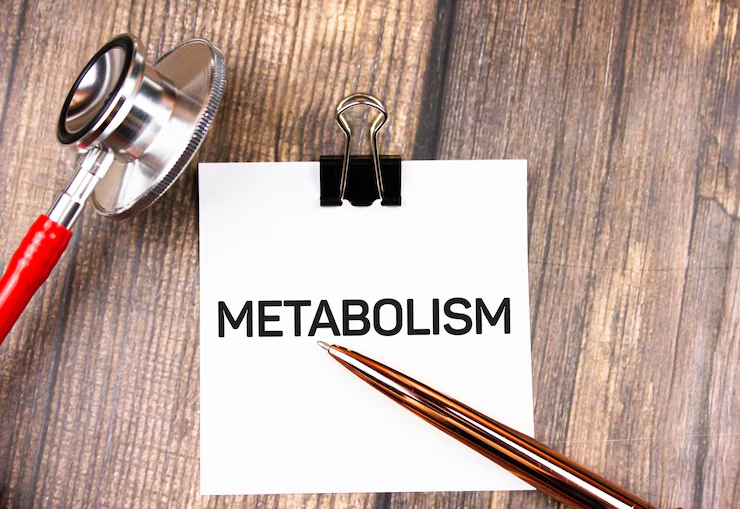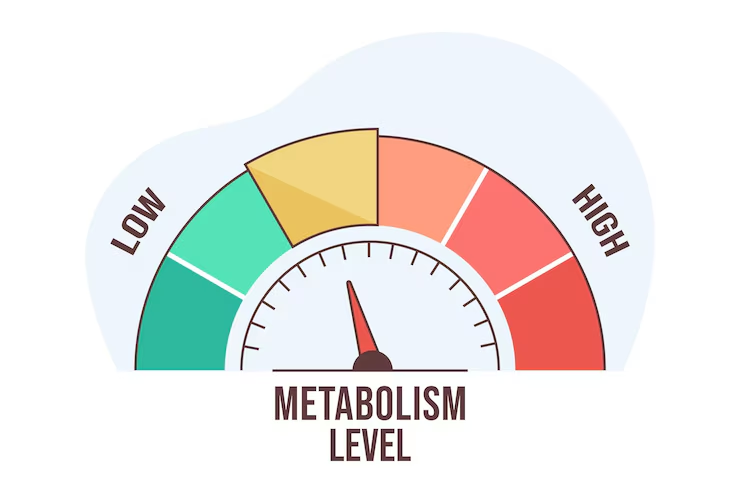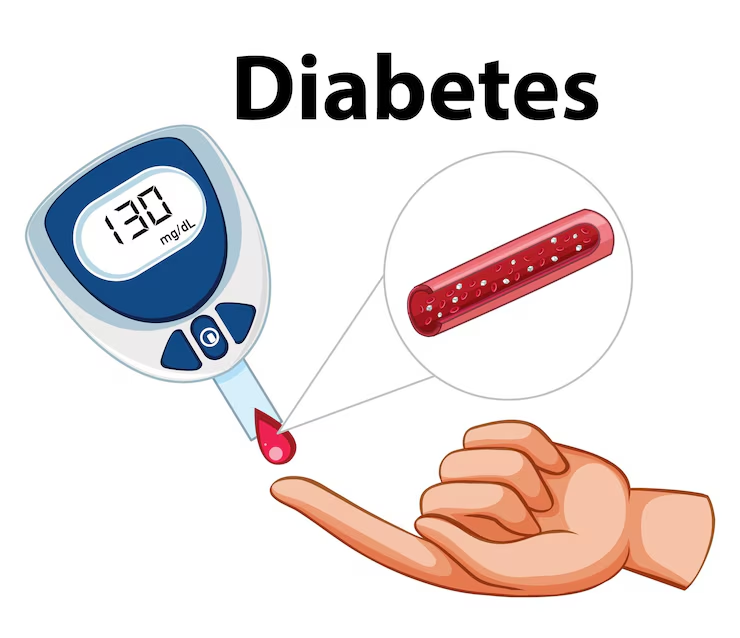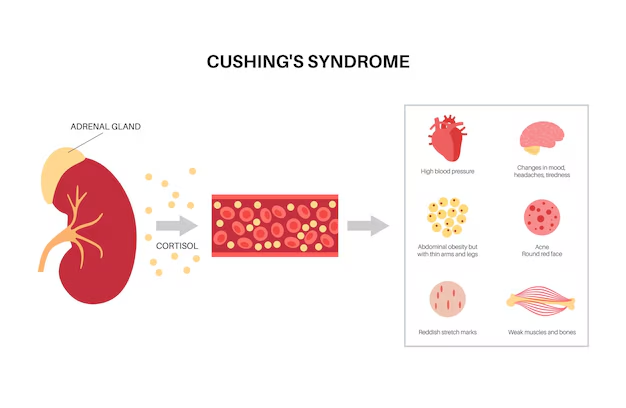Metabolism is a complex network of biochemical processes that occur in all living organisms, enabling essential life functions. It transforms the food we consume into energy, powering everything from movement to cell regeneration. Without metabolism, our bodies couldn’t perform the tasks needed to stay alive and healthy.
The key components of metabolism include catabolic and anabolic reactions. Catabolic reactions break down substances, releasing energy, while anabolic reactions use that energy to build and repair tissues. Together, these processes keep the body functioning smoothly and support overall health.
Several factors influence metabolism, including age, genetics, and lifestyle choices like diet and exercise. Understanding how metabolism works can help us optimize our energy levels, maintain a healthy weight, and improve our well-being. By supporting a balanced metabolism, we can boost vitality and enhance our body’s ability to sustain life.

What is Metabolism ?
Metabolism encompasses the chemical reactions within cells that are essential for life. These processes enable cells to grow, reproduce, repair damage, and adapt to changes in their environment. Metabolism is responsible for converting food into energy, producing the building blocks necessary for life, and eliminating waste products from the body. By supporting these vital functions, metabolism helps sustain overall health and ensures the body’s proper functioning.
Metabolism can be broken down into two main categories:
Catabolism: Catabolism refers to the breakdown of larger molecules into smaller ones, a process that releases energy for the body to use. An example of catabolic activity is the digestion of food, where complex carbohydrates are broken down into glucose, a simple sugar that provides energy. Similarly, fats are broken down into fatty acids, which also serve as an energy source. These reactions are crucial for supplying the body with the energy needed to perform vital functions, such as muscle contraction, brain activity, and cell regeneration.
Anabolism: Anabolism is the process of building larger, more complex molecules from smaller, simpler ones. This process requires energy, as it involves constructing essential components like proteins, DNA, and various cellular structures. Anabolic reactions are responsible for the growth and repair of tissues, as well as the synthesis of molecules that are critical for the proper functioning of cells. For example, when the body builds muscle tissue, it undergoes anabolic processes to synthesize proteins, helping in recovery and growth after physical activity.
The delicate balance between catabolic and anabolic processes is what keeps the body functioning optimally. Too much catabolism leads to muscle breakdown and energy depletion, while excessive anabolism can result in unhealthy weight gain or other metabolic disorders.
How Does Metabolism Work ?
The human metabolism begins when we consume food and drink, which provide essential macronutrients: carbohydrates, fats, and proteins. These nutrients are broken down in the body to produce energy.
This energy is vital for supporting all bodily functions, from muscle movement to cell repair. Through this process, the body transforms food into usable energy, ensuring that every function operates efficiently and healthily.
Digestion and Absorption: The digestive system breaks down these macronutrients into their simplest forms—glucose from carbohydrates, amino acids from proteins, and fatty acids from fats. These molecules are then absorbed into the bloodstream and transported to various cells in the body.
Energy Production (Cellular Respiration): Inside the cells, glucose and fatty acids are processed through a series of chemical reactions known as cellular respiration, which occurs primarily in the mitochondria (the cell’s powerhouses). This process produces adenosine triphosphate (ATP), the primary energy carrier in the body. ATP powers nearly every cellular function, from muscle contraction to nerve signaling.
Storage of Energy: The body can store excess energy for later use. When there’s an abundance of glucose, the liver and muscles store it as glycogen. When glycogen stores are full, excess energy is converted into fat, which is stored in fat cells (adipocytes) throughout the body.
Waste Removal: As cells perform metabolic processes, they generate waste products like carbon dioxide, ammonia, and urea. These waste products are transported to the lungs, kidneys, and liver for removal from the body, keeping internal processes clean and functional.
The entire metabolism process is regulated by various hormones, enzymes, and other regulatory proteins, all working in sync to ensure that the body’s energy needs are met without overwhelming any one system.
Types of Metabolism
Basal Metabolic Rate (BMR)
Basal Metabolic Rate (BMR) represents the amount of energy your body needs to maintain basic life-sustaining functions while at rest, such as breathing, circulating blood, and regulating body temperature. BMR accounts for a significant portion of your total daily energy expenditure, typically around 60-75%. Various factors, including age, gender, genetics, and body composition, influence BMR. For example, muscle mass can increase BMR since muscle tissue requires more energy to maintain than fat tissue.

Resting Metabolic Rate (RMR)
Resting Metabolic Rate (RMR) is similar to BMR but slightly higher, as it measures the energy your body uses while in a normal, sedentary state. RMR accounts for the energy expended during everyday activities such as sitting or standing. Although the difference between BMR and RMR is minimal, RMR is easier to measure because it doesn’t require the strict conditions needed to measure BMR, such as fasting for at least 12 hours before the test.
Active Metabolism
Active metabolism refers to the energy expended during physical activities such as walking, exercising, or even light movements like fidgeting. The intensity and duration of the activity directly influence the amount of energy burned. Activities like running or lifting weights significantly increase energy expenditure, while less intense actions, such as walking, burn fewer calories. Regular physical activity can elevate active metabolism, helping to maintain a healthy weight and overall metabolic function.
Thermic Effect of Food (TEF)
The Thermic Effect of Food (TEF) is the energy required for the body to digest, absorb, and metabolize the food you consume. This process accounts for a small portion of your total energy expenditure, but it can vary based on the types of foods consumed. Protein has a higher thermic effect compared to carbohydrates or fats, meaning the body uses more energy to process proteins. As a result, meals rich in protein can slightly boost metabolism and increase calorie burn during digestion.
Factors That Influence Metabolism
Metabolism is not a static process; several factors influence its rate and efficiency. Understanding these factors can help individuals make informed decisions about their health, weight, and fitness.
Age
As people age, their metabolism tends to slow down, primarily because muscle mass decreases over time. Since muscle tissue burns more calories than fat tissue, a reduction in muscle mass means fewer calories are burned at rest. Consequently, older adults may find that they require fewer calories to maintain their weight. To combat this natural decline, it’s crucial to focus on preserving muscle mass through regular strength training, which can help maintain a higher metabolic rate and prevent weight gain.
Gender
Metabolism tends to differ between men and women, with men generally having a higher metabolic rate due to having more muscle mass. Muscle tissue burns more energy than fat, so the more muscle mass a person has, the more calories they burn at rest. Additionally, men typically have a lower body fat percentage than women, which can further contribute to a higher metabolism. On the other hand, women generally have a higher percentage of body fat, which requires less energy to maintain, resulting in a slower metabolic rate compared to men.
Genetics
Genetics play a significant role in determining an individual’s metabolic rate. Some people are genetically predisposed to have a faster metabolism, which allows them to burn more calories even at rest. This can make it easier for them to maintain a healthy weight or lose weight when needed. Conversely, others may inherit a slower metabolism, which can make it more challenging to lose weight or maintain a healthy weight. While genetics are largely out of our control, lifestyle choices such as diet and exercise can help influence and optimize metabolism.
Body Composition
An individual’s body composition, specifically the ratio of muscle mass to fat mass, has a substantial impact on metabolism. Muscle tissue requires more energy to maintain than fat tissue, meaning that people with a higher muscle mass naturally burn more calories, even when at rest. This is why strength training and building muscle are critical for boosting metabolism and maintaining a healthy weight. The more muscle you have, the more calories you’ll burn throughout the day, making it easier to manage weight and promote overall health.
Physical Activity

Exercise and physical activity can significantly boost metabolism, both during and after the activity. High-intensity exercises, such as strength training or interval training, can lead to an afterburn effect (also known as excess post-exercise oxygen consumption, or EPOC). During this period, the body continues to burn calories at an elevated rate for hours after the workout. Regular physical activity not only helps increase metabolism during exercise but can also enhance overall metabolic efficiency, promoting better weight management and overall health.
Diet and Nutrition
The foods we eat directly influence how efficiently the body burns energy. For example, consuming protein-rich foods can temporarily increase metabolism due to the thermic effect of food, which is the energy required to digest, absorb, and process nutrients. In contrast, skipping meals or following very low-calorie diets can slow down metabolism, as the body enters a conservation mode to preserve energy. Maintaining a balanced diet with an appropriate mix of nutrients can help keep metabolism functioning optimally and prevent metabolic slowdown.
Hormonal Factors
Hormones are powerful regulators of metabolism and play a central role in determining how efficiently the body burns energy. For instance, thyroid hormones, produced by the thyroid gland, are crucial for controlling metabolic rate. Hyperthyroidism, or an overactive thyroid, can lead to a faster metabolism, while hypothyroidism, or an underactive thyroid, can slow it down. Other hormones, such as insulin, cortisol, and leptin, also influence metabolic processes related to energy storage, fat utilization, and hunger, making hormonal balance essential for healthy metabolism.
Environmental Temperature
Environmental temperature can influence metabolism as the body works harder to maintain a stable internal temperature in extreme conditions. In cold environments, the body may need to burn more calories to generate heat and keep the body warm. Conversely, in hot environments, the body expends energy to cool down, primarily through sweating. These temperature-induced changes in metabolism are generally small but can slightly increase overall energy expenditure. Dressing appropriately for the weather and staying active in varying conditions can help optimize calorie burn.
Common Metabolic Disorders
While metabolism is essential for normal bodily functions, certain conditions can disrupt metabolic processes, leading to health problems. Some of the most common metabolic disorders include:
Diabetes Mellitus
Diabetes mellitus occurs when the body has trouble managing blood sugar levels due to issues with insulin. In Type 1 diabetes, the body doesn’t produce enough insulin, while in Type 2 diabetes, the body becomes resistant to insulin. Insulin is a hormone responsible for regulating blood sugar, and when it doesn’t function properly, it disrupts the metabolism of carbohydrates. This can lead to persistently elevated blood sugar levels, which, if left unmanaged, can result in serious health complications such as nerve damage, heart disease, and kidney issues.

Hypothyroidism and Hyperthyroidism
Hypothyroidism and hyperthyroidism are disorders caused by imbalances in the thyroid hormones, which regulate metabolism. In hypothyroidism, the thyroid gland produces insufficient hormones, leading to a slower metabolism. This can cause symptoms such as fatigue, weight gain, and depression. On the other hand, hyperthyroidism occurs when the thyroid produces an excess of hormones, speeding up the metabolism. This can result in symptoms like unintended weight loss, rapid heartbeat, increased appetite, and anxiety. Both conditions significantly impact the body’s ability to process energy effectively.
Metabolic Syndrome
Metabolic syndrome is a group of risk factors that increase the likelihood of developing serious health problems such as heart disease, stroke, and type 2 diabetes. The condition is characterized by high blood pressure, elevated blood sugar levels, excess fat around the abdomen, and abnormal cholesterol levels. Metabolic syndrome is often linked to obesity, poor diet, and a sedentary lifestyle. People with metabolic syndrome are at higher risk for developing cardiovascular issues and other metabolic disorders, making it important to manage these risk factors through lifestyle changes like improved nutrition and regular physical activity.
Cushing’s Syndrome
Cushing’s syndrome is a condition caused by prolonged exposure to high levels of cortisol, a hormone produced by the adrenal glands that plays a role in regulating metabolism. When cortisol levels remain elevated for extended periods, it can lead to excessive breakdown of proteins and fats. This results in symptoms like weight gain, particularly around the abdominal area, thinning skin, and muscle weakness. Cushing’s syndrome can be caused by tumors or other issues that affect the adrenal glands or pituitary gland. Treatment typically involves addressing the underlying cause of the cortisol imbalance.

Conclusion
Metabolism is the complex set of processes that powers the body, ensuring cells can perform essential functions like energy production, growth, and repair. It goes beyond just burning calories or weight loss, regulating how the body uses energy for daily tasks. These processes are vital to maintaining overall health and vitality.
A variety of factors affect how the body performs these tasks, such as physical activity, nutrition, sleep, and stress management. Regular exercise, a balanced diet, proper rest, and managing stress all play a crucial role in optimizing how efficiently the body operates. By addressing these factors, individuals can support their body’s natural processes for better health.
Whether you’re aiming to lose weight, build muscle, or simply maintain a healthy lifestyle, understanding how to optimize energy use can help you reach your goals. Focusing on these lifestyle factors can enhance overall well-being and support long-term health and fitness.
FAQs
Q1. Can I speed up my metabolism to lose weight ?
While you can’t drastically change your metabolism overnight, certain habits can help optimize its function. Regular exercise, particularly strength training and high-intensity interval training (HIIT), can increase muscle mass and boost metabolism. Eating a balanced diet rich in protein can also give your metabolism a temporary boost. Getting enough sleep and reducing stress are other factors that can prevent your metabolism from slowing down. However, metabolism alone is just one part of the weight loss equation, and sustainable weight loss requires a combination of proper nutrition and exercise.
Q.2 Does metabolism slow down as we age ?
Yes, metabolism tends to slow down as we get older, primarily due to the natural loss of muscle mass and hormonal changes. Muscle tissue burns more calories at rest than fat, so a decrease in muscle mass can lead to a decrease in metabolic rate. However, engaging in regular strength training and maintaining an active lifestyle can help offset some of this decline. Additionally, eating a protein-rich diet and staying active can help preserve muscle mass and keep your metabolism functioning optimally.
Q. 3 How do thyroid problems affect metabolism ?
The thyroid is a gland in your neck that produces hormones that regulate many of the body’s functions, including metabolism. If the thyroid produces too little hormone (hypothyroidism), metabolism slows down, leading to symptoms such as fatigue, weight gain, and cold intolerance. On the other hand, an overactive thyroid (hyperthyroidism) can cause an accelerated metabolism, leading to symptoms like unexplained weight loss, rapid heartbeat, and anxiety. Proper thyroid function is essential for maintaining a healthy metabolic rate.
Q.4 Can drinking water increase metabolism ?
Yes, drinking water can give your metabolism a temporary boost. When you drink cold water, your body uses energy to heat it to body temperature, which can slightly increase your metabolism for a short period of time. This effect is called water-induced thermogenesis. Additionally, staying well-hydrated is crucial for maintaining optimal metabolic function, as dehydration can slow down many of the chemical reactions involved in energy production. While water alone won’t cause significant weight loss, it is an essential part of a healthy metabolism.
Q.5 What is the difference between Basal Metabolic Rate (BMR) and Resting Metabolic Rate (RMR) ?
While both BMR and RMR refer to the amount of energy your body needs to perform basic functions at rest, the key difference is in the conditions under which they are measured:
- BMR is the amount of energy required to maintain basic physiological functions (like breathing and regulating body temperature) in a completely rested state, typically measured after an overnight fast in a controlled environment.
- RMR is a more practical measurement that reflects the energy used by the body at rest but is slightly higher than BMR because it accounts for additional minor activities (like digestion or minor movements) and doesn’t require strict conditions. RMR is easier to measure in everyday settings.


